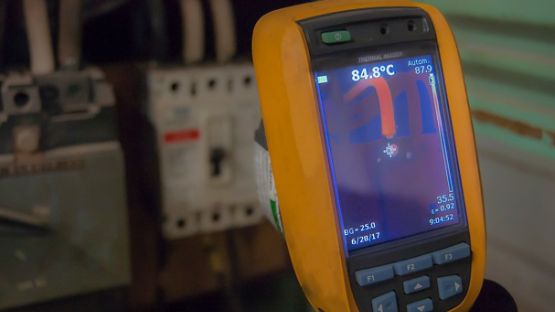Canadian businesses are increasingly adopting battery energy storage systems (BESS) as part of their renewable energy strategies. These battery systems help businesses manage energy more efficiently by storing electricity during off-peak hours when it's cheaper and then using it during peak demand times, which can reduce energy costs.
Battery energy storage systems are especially useful in industries with high energy demands, such as manufacturing, mining, and data centres. Energy storage systems are also being implemented in sectors like renewable energy, where businesses can store energy from solar or wind power for later use.
A battery energy storage system can provide backup power during outages, support grid stability and help businesses meet sustainability goals by reducing reliance on fossil fuels. Canada’s push toward renewable energy, along with government incentives and regulations supporting clean technology, is driving the adoption of these power systems.
What is a battery energy storage system (BESS)?
BESS refers to a technology that allows energy to be stored in batteries for later use. These battery systems are designed to capture and store electricity, which can then be used when energy demand is high, such as during power outages or when renewable energy sources like solar and wind are not generating power.
Benefits of battery energy storage systems (BESS)
Battery storage technology can be used to provide:
- Grid stability: Reduces stress on the energy grid during high demand and helps maintain a stable electricity supply.
- Renewable energy integration: By storing excess energy and releasing it when those sources are not generating power.
- Cost savings: Businesses and homes can save money on energy costs by reducing reliance on peak-time electricity rates.
- Backup power: Battery energy storage can supply fast response backup power in the event of a failure to ensure infrastructure is operational and power downtime is minimal.
What are some risks of battery energy storage systems (BESS)?
While BESS offer many advantages, there are also several risks associated with storage system use. These risks can vary depending on the type of battery, installation and use case. Here are some of the most common risks associated with battery energy storage systems and how to mitigate them:
1. Battery fire and thermal runaway
Some types of batteries, especially lithium-ion, can overheat and catch fire. This happens due to a process called "thermal runaway," where excessive heat causes a reaction that leads to even more heat, potentially causing fires or explosions.
This is usually caused by overcharging, physical damage, manufacturing defects or improper cooling of a lithium battery. You can prevent these risks by ensuring proper thermal management is in place.
2. Battery degradation
Over time, lithium batteries degrade with repeated charging and discharging, which reduces their efficiency and energy storage capacity. This can lead to reduced performance over time which can increase operational costs and require premature replacement of energy systems.
To mitigate this risk, implement a proper charging/discharging cycle to avoid overuse, monitor battery health regularly using diagnostic tools and operate batteries within recommended temperature ranges to slow degradation.
3. Electric shock and safety concerns
BESS involves high-voltage equipment, and there is a risk of electric shock or electrocution during installation, maintenance or system failure. Potentially leading to personnel injury, safety liabilities and energy supply interruption.
To reduce risks, ensure employees and technicians are trained in high-voltage safety protocols, implement lockout/tagout procedures during maintenance and enforce proper personal protective equipment (PPE) for people working around BESS.
4. Environmental and toxicity concerns
Some battery types, such as lead-acid or older nickel-based batteries, contain hazardous materials that can pose environmental risks if not properly handled, especially during disposal or recycling.
Improper disposal of batteries could result in environmental contamination, and businesses may face fines or reputational damage. To prevent these issues, use non-toxic or environmentally friendly battery chemistry when possible, partner with a certified recycling company to ensure safe disposal and follow local regulations for battery disposal and recycling.
Get support with battery energy storage systems (BESS)
Do you have more questions about integrating a BESS into your business operations? Aviva Risk Management Solutions has professional risk consultants across Canada who can provide expert advice and resources on battery energy storage systems. Reach out to us at arms.canada@aviva.com.
Sources:
What is a BESS? - Vector Energy
Battery Energy Storage System (BESS) | The Ultimate Guide (edina.eu)
Consequences of BESS catastrophic failure - BakerRisk Series
Battery Energy Storage System (BESS): In-Depth Insights 2024 (huawei.com)













